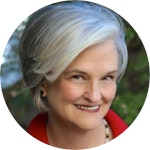Introductory Note:
In the article, “Contagious: The Surprising Things That Make Community Transformational,” which originally appeared in Conversations Journal, Jan Johnson really does talk about surprising things that transform community. I teach seminary classes on discipleship and community and was overwhelmed, in a good way, by all that I learned from Jan in this piece. It is both convicting and instructive. I will return to this piece again and again and share it with my students.
(The following is an excerpt with a link to the full article included below, courtesy of Jan Johnson.)
Marlena Graves
WELCOMING, NOT SELECTIVE
Without thinking a lot about it, most of us choose carefully those we associate with. We like to be with people who are like us, having similar education or socioeconomic status. We may even feel uncomfortable around people of different ethnicity or worldview. In our culture, there’s a strong emphasis on fitting in and, therefore, belonging. Even Christians notice if other Christians are not from the same corner of the kingdom, if they don’t read the same books. Women tend to flock with women who have children their own children’s age. Men group with others who like sports or play golf. Parents segregate based on whether kids are home-schooled, go to Christian school, or go to public school.
Yet the early church — which included slaves but also rich people, extortionists, and former prostitutes, as well as priests — was somehow “of one heart and soul.” For those who follow God, community can exist between people who are enemies. Consider how opposite Elijah and the widow of Zarephath were: male and female; Hebrew and Palestinian. These gaps were as wide or wider than now. But they needed each other and worked together. I like to say that he had the power and she had the flour (and oil). Neither fit in with the other’s crowd, yet they worked together and helped each other. If I follow their example, I will be open to the community that God puts in front of me rather than choosing those with whom I have something in common.
Community among those with cultural or social differences invites us to reach out to others, to go the extra mile, to welcome the “stranger” (Matthew 25:38). So when my husband and I invite to a holiday meal a client at the drop-in center for the homeless where I volunteer, we have to go out of our way to make them feel comfortable. But that’s good, because it teaches us to be welcoming and to “look not to our own interests, but to the interests of others.” In such community we are stretched and grow.
FOLLOWING THE SPIRIT, NOT FEELINGS OF CLOSENESS
You may wonder, ‘Doesn’t community involve feelings of closeness?” Sometimes it may, but I’ve decided those feelings are not a requirement. Love (again, engaging will for good of the other), which is the basis of community, is not a feeling but an intention to walk alongside others, some of whom may drive us crazy. We may even complain in our thoughts,
“I really don’t need this person!” — as Paul said the eye might have said to the hand, “I don’t need you!” My husband and I experienced this a few years ago when he was leading a worship team. One of the vocalists was a woman who talked a lot. We both found her irritating. So I was surprised when my husband came home from worship practice to say that the person who had calmed everyone through an upset was this woman.
“She talked quietly and just kept soothing the other person until he was calm,” he said. “Then we were able to talk about what happened and what we needed to do.” I thought about this woman I had dismissed: Yes, I do need you!
Making feelings of closeness a standard for community may even be detrimental to community. Some people are not capable of being transparent or open. Perhaps their past experiences have made a sense of closeness very difficult. Should they be excluded from community?
I knew a woman who seemed to ooze authenticity, and we met regularly for a long time. Yet as time passed, I saw that while she could be transparent in a staged way, she withheld a great deal. And she was less empathetic and more judging than I thought. I felt betrayed; why wasn’t she the authentic person she seemed to be? So I asked God to release me from regularly meeting with her, but I didn’t get a sense of release. The more I interacted with God about it, the more I saw that my motives were mixed. Yes, I was giving to someone by going out of my way to meet with her, but I was giving to get. I expected acceptance and empathy, intimacy and transparency. Would I give only if I received something in return? She was being as authentic as she was able.
Are closeness and intimacy, which Americans value so highly, biblical virtues? In talking about community, Paul urged us to “pursue love,” which is not the same as pursuing closeness or intimacy. Pursuing intimacy can, in fact, make it more difficult. A small group’s pastor friend laughs that she no longer has their small groups of married couples read and discuss marriage books because they lead to arguments between spouses! One of the spouses usually feels cornered into an intimacy they’re not ready for. Yet that spouse may love the other deeply.
Even those capable of closeness may have times in their lives when they are not able to be so. Because of grief or calamity, people we love may find they have to distance themselves from others. Can I walk with them through this time and love them when they don’t seem to be authentic or relational?
Such situations make us question notions that community is a nurturing place for people to receive what they need. Although that may happen, it works better to view it as a place in which my love will become more well-formed (and by this I mean teleios [full-grown, mature]— the “perfect love” of 1 John 4:18). I now see community as a school for love. Community is where I will learn to love.
Hungry for more? Please check out the complete article (first published as “Contagious” in Conversations, Spring/Summer 2015) at Jan’s website.
Text First Published February 2015


